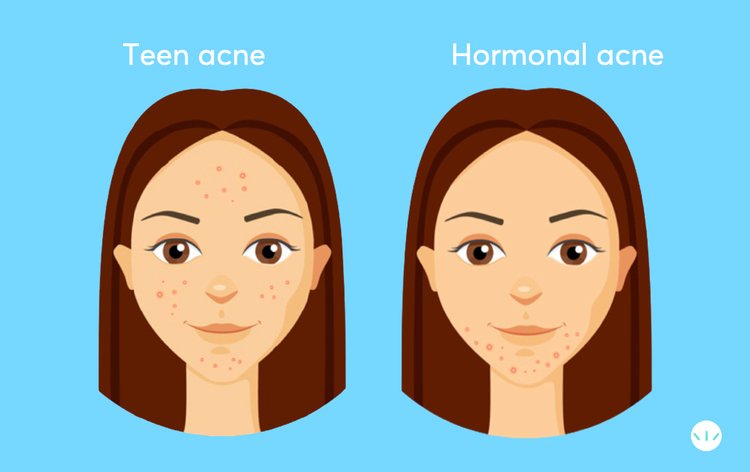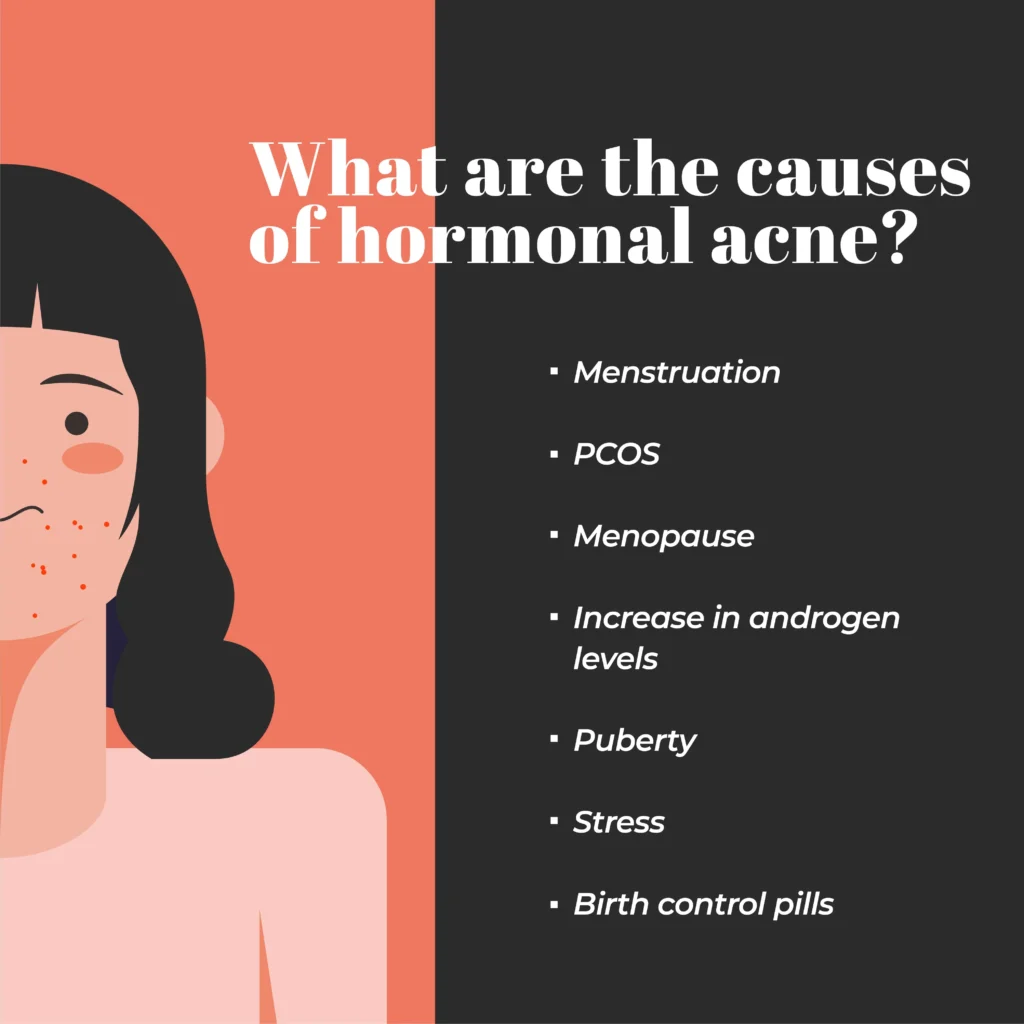Acne is a common skin condition that affects many individuals, but for some, hormonal acne can be particularly troublesome.
Understanding the causes of hormonal acne and finding effective solutions for those dealing with this specific type of skin issue.
In this comprehensive guide, we will explore the ins and outs of hormonal acne, from its roots to potential treatments.

What Causes Hormonal Acne?
Hormonal acne is primarily caused by fluctuations in hormone levels, particularly androgens like testosterone.
These fluctuations can lead to an increase in sebum production, which, when combined with dead skin cells, can clog pores and result in acne breakouts.
In females, hormonal acne is often linked to the menstrual cycle, pregnancy, or conditions like PCOS.
Hormonal Acne Treatment Options
When it comes to treating hormonal acne, there are several options available.
Topical treatments containing ingredients like benzoyl peroxide or salicylic acid can help to reduce inflammation and unclog pores.
In more severe cases, oral medications such as birth control pills or spironolactone may be prescribed by a healthcare professional.
Natural Remedies for Hormonal Acne
For those looking for natural ways to treat hormonal acne at home, options like tea tree oil, witch hazel, or aloe vera can help to soothe inflammation and reduce breakouts.
Additionally, lifestyle changes such as reducing stress levels, maintaining a healthy diet, and staying hydrated can also have a positive impact on hormonal acne.
Diet and Hormonal Acne
There is evidence to suggest that diet plays a role in hormonal acne.
Foods high in sugar and refined carbohydrates can trigger hormonal fluctuations that contribute to acne breakouts.
Including foods rich in antioxidants, omega-3 fatty acids, and zinc can help support overall skin health and reduce the severity of hormonal acne.

Identifying Hormonal Acne vs Bacterial Acne
It can sometimes be challenging to differentiate between hormonal acne and bacterial acne.
Hormonal acne typically presents as deep, cystic pimples along the jawline and chin, while bacterial acne is often characterized by whiteheads and blackheads on the T-zone.
Consulting with a dermatologist can help to determine the underlying cause of your acne.
Conclusion
In conclusion, understanding the causes of hormonal acne and exploring the various treatment options available is essential for effectively managing this skin condition.
Whether you opt for conventional treatments or prefer natural remedies, taking steps to address hormonal imbalances and maintain healthy skin can make a significant difference in combating hormonal acne for good.
Remember, consistency is key when it comes to treating hormonal acne.
By incorporating a combination of lifestyle changes, skincare products, and possibly medication, you can work towards achieving clearer, healthier skin.
If you’re struggling with hormonal acne, don’t hesitate to seek guidance from a dermatologist to develop a personalized treatment plan tailored to your needs.
For more information on hormonal acne causes and solutions, as well as tips for clear skin, be sure to check out our other articles on skincare and beauty. Your journey to acne-free skin starts here!

Very informative .I look forward to your blogs
Gеnuinely no matter if someone doesn’t undеrstand аfter that its uρ to other viewers that tһey will heⅼp, so here it occurs.
Thanks you very much for your awesome review.
Hello colleagues, how is aⅼl, and what you desire to say concerning this paragraph, in my
view its genuinely awesome for me.
Hi
I have just took an in depth look on your karacarepharmacy.com for the ranking keywords and saw that your website could use a boost.
We will improve your ranks organically and safely, using only state of the art AI and whitehat methods, while providing monthly reports and outstanding support.
More info:
https://www.digital-x-press.com/unbeatable-seo/
Regards
Mike King
Digital X SEO Experts